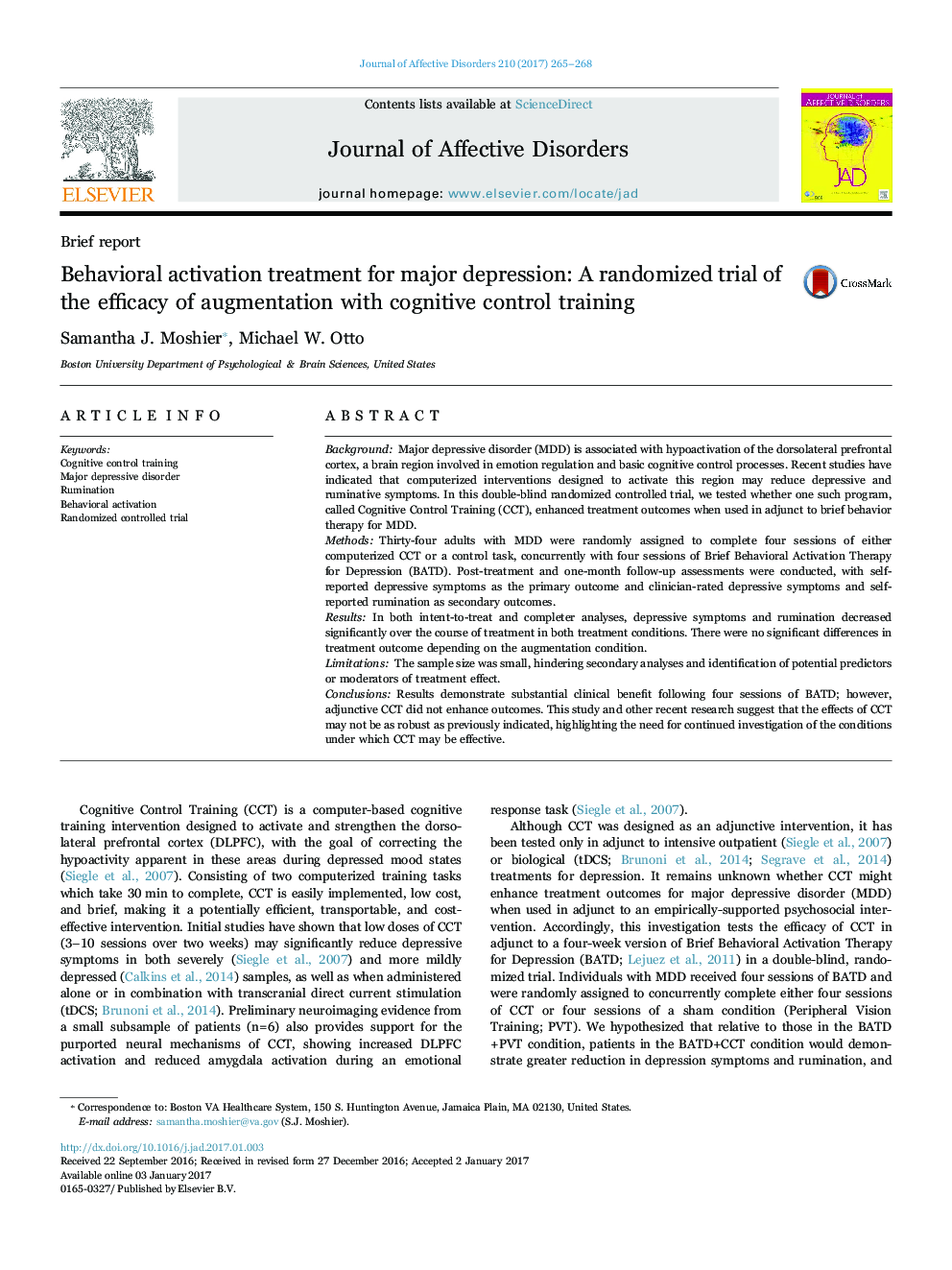| کد مقاله | کد نشریه | سال انتشار | مقاله انگلیسی | نسخه تمام متن |
|---|---|---|---|---|
| 5722401 | 1608115 | 2017 | 4 صفحه PDF | دانلود رایگان |
- 34 adults with MDD received four sessions of brief behavioral activation therapy.
- Randomized to concurrently receive 4 sessions of cognitive control training or sham.
- Large within group effect of behavioral activation on depressive symptoms over time.
- Cognitive control training did not enhance behavioral activation outcomes.
BackgroundMajor depressive disorder (MDD) is associated with hypoactivation of the dorsolateral prefrontal cortex, a brain region involved in emotion regulation and basic cognitive control processes. Recent studies have indicated that computerized interventions designed to activate this region may reduce depressive and ruminative symptoms. In this double-blind randomized controlled trial, we tested whether one such program, called Cognitive Control Training (CCT), enhanced treatment outcomes when used in adjunct to brief behavior therapy for MDD.MethodsThirty-four adults with MDD were randomly assigned to complete four sessions of either computerized CCT or a control task, concurrently with four sessions of Brief Behavioral Activation Therapy for Depression (BATD). Post-treatment and one-month follow-up assessments were conducted, with self-reported depressive symptoms as the primary outcome and clinician-rated depressive symptoms and self-reported rumination as secondary outcomes.ResultsIn both intent-to-treat and completer analyses, depressive symptoms and rumination decreased significantly over the course of treatment in both treatment conditions. There were no significant differences in treatment outcome depending on the augmentation condition.LimitationsThe sample size was small, hindering secondary analyses and identification of potential predictors or moderators of treatment effect.ConclusionsResults demonstrate substantial clinical benefit following four sessions of BATD; however, adjunctive CCT did not enhance outcomes. This study and other recent research suggest that the effects of CCT may not be as robust as previously indicated, highlighting the need for continued investigation of the conditions under which CCT may be effective.
Journal: Journal of Affective Disorders - Volume 210, 1 March 2017, Pages 265-268
